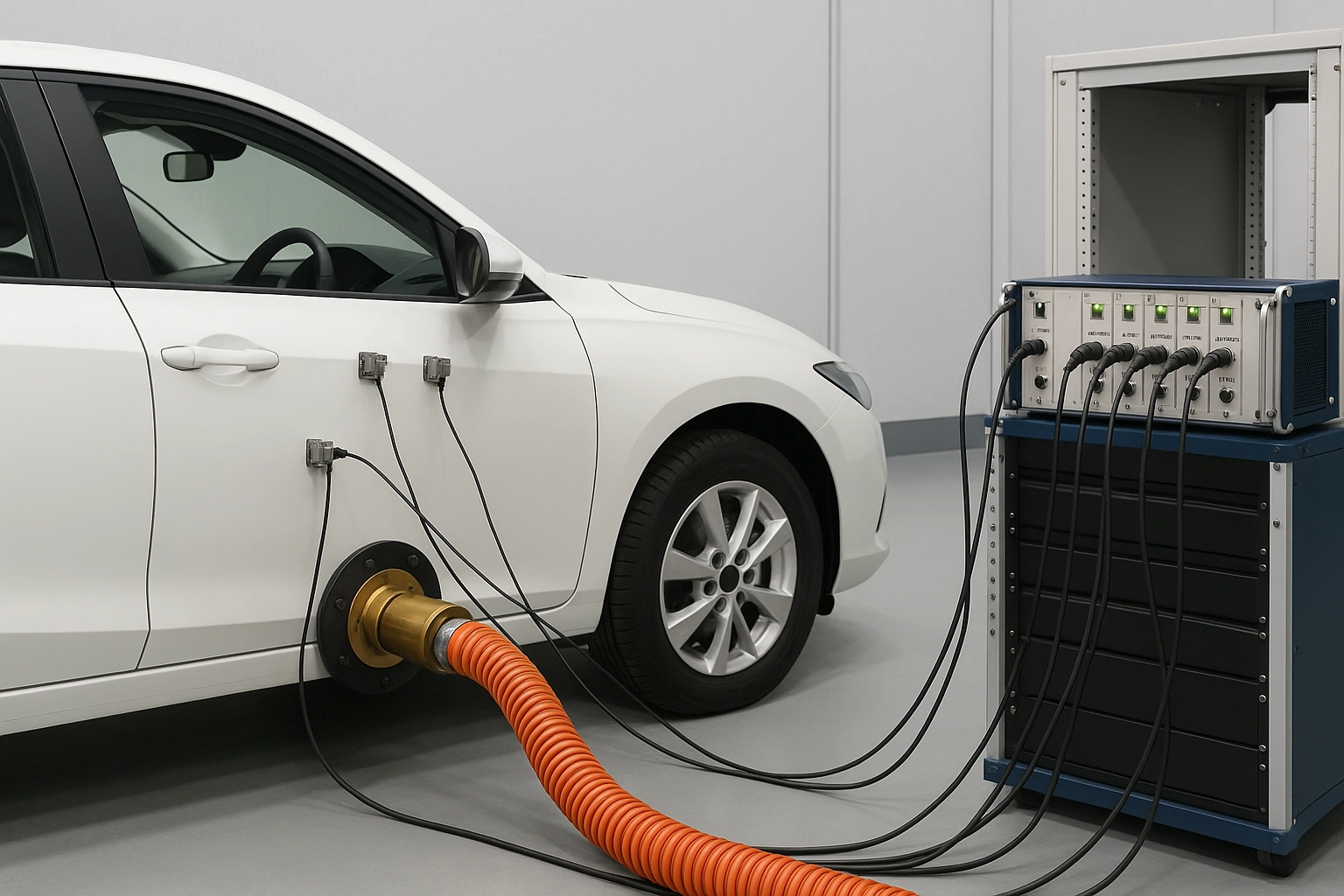FMVSS 201 Interior Impact Acoustic Testing
The Federal Motor Vehicle Safety Standard (FMVSS) 201 sets stringent requirements for the acoustic performance of vehicles to ensure occupant protection during interior impacts. This testing is critical in safeguarding passengers from noise, vibration, and harshness that could lead to discomfort or injury.
Our FMVSS 201 Interior Impact Acoustic Testing service leverages advanced acoustic measurement equipment tailored for automotive interiors. We employ state-of-the-art sound pressure level (SPL) meters, anechoic chambers, and other specialized apparatus to meet the stringent requirements set forth by FMVSS 201.
The testing process involves preparing the vehicle interior as specified in the standard. This includes ensuring that all components are installed per manufacturer specifications and verifying their placement. The test setup must replicate real-world crash scenarios, focusing on the sound propagation and absorption characteristics within the interior space.
During the actual acoustic testing, we measure the noise levels under various conditions to ensure they do not exceed the limits prescribed by FMVSS 201. This involves precise calibration of our equipment to guarantee accurate measurements. The data collected is analyzed using sophisticated software tools that provide a detailed report outlining compliance with the standard.
This service is essential for manufacturers aiming to comply with FMVSS 201, which not only ensures safety but also enhances comfort and overall vehicle performance. Compliance with this regulation can significantly influence the marketability of vehicles in both domestic and international markets.
The testing process involves several key steps:
- Setup: Preparation of the vehicle interior to meet FMVSS 201 specifications.
- Calibration: Ensuring all equipment is accurately calibrated for precise measurements.
- Testing: Conducting sound level measurements under various conditions.
- Data Analysis: Processing and interpreting the collected data for compliance verification.
Why Choose This Test
Selecting FMVSS 201 Interior Impact Acoustic Testing is crucial for several reasons. Compliance with this standard not only ensures safety but also enhances the overall driving experience by reducing noise levels that could be harmful to occupants during collisions.
Our testing service offers a range of benefits, including:
- Enhanced passenger safety through reduced risk of injury from excessive interior sound levels during impacts.
- Promotion of occupant comfort by minimizing noise and vibration in the vehicle cabin.
- Achievement of regulatory compliance, which is essential for market entry into the United States and other regions with similar standards.
- Improved brand reputation through demonstrated commitment to safety and quality.
The test results are crucial for R&D engineers in refining vehicle designs and improving performance. Quality managers can use these insights to ensure product quality meets or exceeds regulatory requirements, while compliance officers gain the necessary data to avoid potential legal issues and penalties.
Competitive Advantage and Market Impact
Compliance with FMVSS 201 can be a significant competitive advantage in the automotive industry. By offering vehicles that meet or exceed these stringent standards, manufacturers can differentiate their products from competitors.
Meeting regulatory requirements enhances marketability by ensuring consumer safety and satisfaction. This compliance can also open doors to new markets where FMVSS 201 is applicable. For instance, exporting vehicles to the United States requires strict adherence to this standard.
The testing service not only helps in achieving compliance but also provides valuable insights that can be used for continuous improvement of vehicle designs and materials. This ensures that future products are even safer and more comfortable, potentially leading to increased customer loyalty and market share.
Use Cases and Application Examples
- Vehicle Development: Used during the design phase to identify potential issues with interior noise and vibration that could affect occupant safety and comfort.
- Regulatory Compliance: Ensures vehicles meet FMVSS 201 requirements before market release.
- R&D Optimization: Provides data for iterative design improvements to enhance vehicle performance and safety.
- Supplier Evaluation: Assists in evaluating the quality of components supplied by third-party manufacturers.
- Post-Market Surveillance: Helps in monitoring vehicles after they have been released to identify any emerging issues that could impact compliance or safety.





